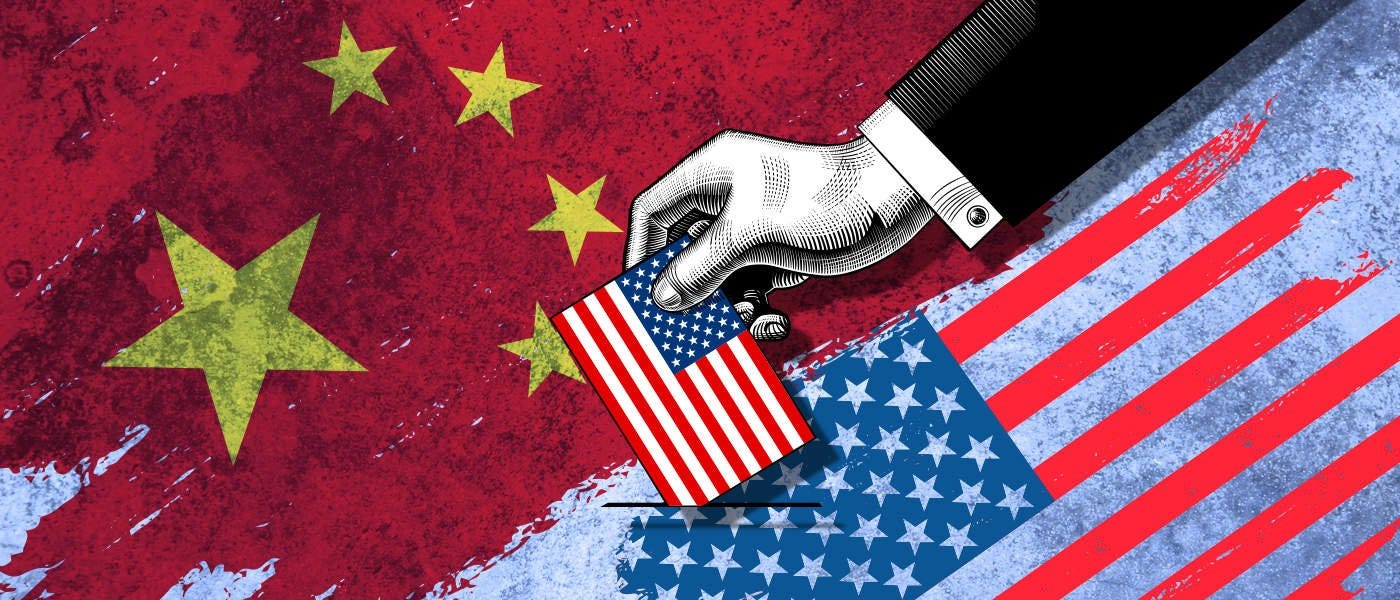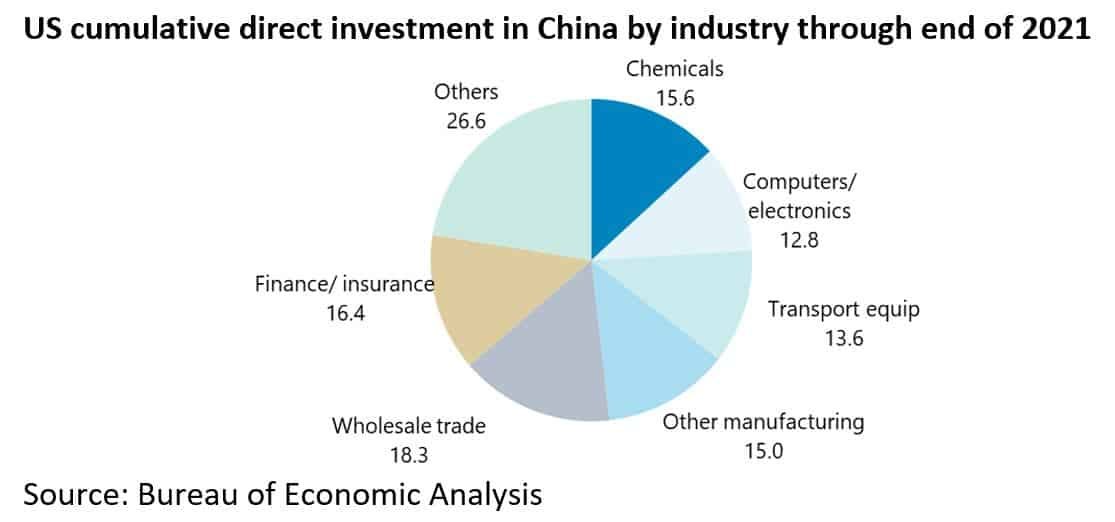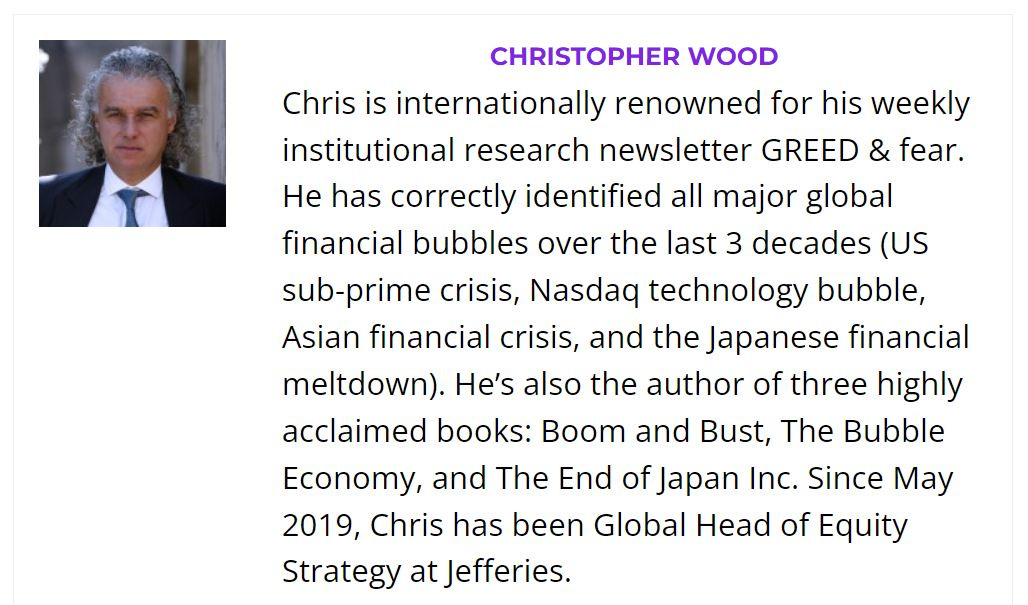US-China Relations are About to Get Worse
Author: Chris Wood
The base case remains a continuing deterioration in US-China relations.
That said, a speech on 20 April by US Treasury Secretary Janet Yellen was clearly an attempt to extend an olive branch.
In particular, Yellen stated that US national security concerns “are not designed for us to gain a competitive economic advantage, or stifle China’s economic and technological modernization”.
This is clearly a reference to the stated policy of the US Department of Commerce to block the supply of advanced semiconductors to China.
This writer has viewed this policy since it was first announced last October as a de facto declaration of economic war against China.
It seems from a Beijing point of view, as a targeted effort by Washington’s national security lobby to stop China from upgrading its economy, which results in the risk that the country is stuck in the dreaded middle-income trap given China’s deteriorating demographics.
So while Yellen’s tone should be welcomed as an effort to soften the rhetoric of late coming from the likes of National Security Advisor Jake Sullivan or Secretary of State Antony Blinken, who have appeared at times to be out to pick a fight with China, this writer’s opinion is that it will not have convinced Beijing.
Yellen’s speech represents mixed messages at best.
Indeed China Foreign Ministry spokesman Wang Wenbin stated in response to it that Washington’s “true intention is to deprive China of its development rights. It is pure economic coercion.”
There is certainly no sign of any backdown whatsoever on Washington’s agenda on semiconductors which this writer continues to view as the biggest move against globalisation yet, while the Biden administration is reportedly about to announce new restrictions on US companies’ investments in China.
Thus, Biden aims to sign an executive order in coming weeks that will limit investment in China by American businesses.
The executive order will reportedly cover semiconductors, artificial intelligence and quantum computing.
Some types of new investment in critical sectors will be prohibited while others will require companies to notify the US government.
The US seemingly got an endorsement from its G7 partners on such investment curbs at a G7 summit in Japan in May.
Biden said at the end of the G7 summit that the G7 agrees on diversifying supply chains and ‘’de-risking’’ without decoupling from China.
For the record, cumulative direct investment in China by US business totaled US$118bn at the end of 2021, with US$57bn or 48% going into the manufacturing sector, according to the Bureau of Economic Analysis.
The Inflation Reduction Act is Set to Increase, Not Decrease Inflation
Meanwhile last year’s Inflation Reduction Act (IRA), with its uncapped subsidies, marks the biggest move this writer has seen yet against the agenda of free market capitalism which the US is meant to believe in.
The result will be an onshoring investment boom, which will be both inflationary and lead to a massive misallocation of capital.
It was interesting to read a quote attributed to BlackRock chairman Larry Fink in a recent article that the Biden administration’s efforts to reshore manufacturing meant that US inflation was unlikely to fall below 4% “anytime soon” (see Financial Times article: “Critics warn US Inflation Reduction Act could keep prices high”, 24 April 2023).
This writer agrees.
China Is Not Interested in Territorial Expansion
What about Washington’s stated national security concerns for rationalizing the ban on advanced semiconductors?
Remember that the stated rationale is that these advanced semiconductors can go into “weapons of mass destruction”, a phrase which prompts unfortunate memories.
Such an argument presupposes that Beijing is territorially expansionist by nature. That is certainly not this writer’s view.
As anyone who has spent any time in Asia probably understands, China is primarily interested in doing business not building empires. The much-derided Belt and Road Initiative is an expression of that.
What about Taiwan?
This writer also believes that Beijing has no interest in invading Taiwan.
But it must be admitted that there is a risk that, if Washington keeps escalating the issue, at a certain point China’s President Xi Jinping will start to look weak in the eyes of his own people if he keeps turning the other cheek.
This is because Chinese people view Taiwan, rightly or wrongly from an historical perspective, as belonging to China.
Meanwhile Beijing will certainly not be escalating the Taiwan issue in coming months because the PRC will be hoping that the incumbent Democratic Progressive Party (DPP) loses the Taiwan presidential election in January 2024 to the more mainland friendly Kuomintang (KMT).
Such a result will make it harder to sustain the current narrative on Taiwan emanating from Washington.
In this respect, a detailed opinion poll conducted in Taiwan in January by Taiwan Public Opinion Foundation contained some interesting insights.
The poll showed, for example, that only 38.5% of Taiwanese adults were satisfied with the incumbent Tsai Ing-wen government’s handling of cross-Strait relations, down from 49.5% in May 2022 and the lowest level since December 2018.





